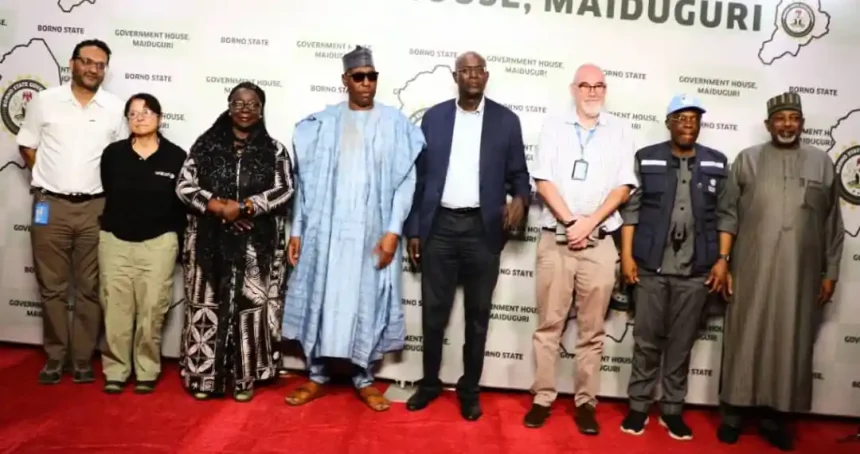The United Nations, through its Humanitarian Coordinator in Nigeria, Mohammed Fall, has allocated $6 million from the Nigeria Humanitarian Fund to assist flood victims in Borno State after the collapse of Alau Dam on September 10.
The dam collapse displaced hundreds of thousands of people, severely affecting the region.
UN Spokesperson Stephane Dujarric revealed during a news conference in New York that a joint mission, including UN agencies, NGOs, and the Nigeria Red Cross Society, visited Maiduguri, the capital of Borno State, over the weekend.
Many of those impacted had already been displaced multiple times by conflict and insecurity.

Dujarric noted that the UN and its partners are delivering vital relief, including hot meals, water, sanitation, hygiene services, and water purification tablets to prevent disease outbreaks. They are also distributing hygiene kits to women and girls, along with emergency health and shelter services.
READ ALSO: NEMA Rescues Over 400 Flood Victims in Borno Crisis
In addition to these efforts, the UN Office for the Coordination of Humanitarian Affairs is actively seeking more funding from donors to scale up relief operations. Across Nigeria, floods have ravaged over 125,000 hectares of farmland, further exacerbating the country’s food insecurity crisis.
Emmanuel Bigenimana, head of the World Food Programme (WFP) office in Maiduguri, described the situation as “heartbreaking” after flying over the city for a rapid assessment. He emphasized the dire conditions faced by more than 200,000 displaced persons crowded into camps and streets, with homes, roads, schools, and hospitals submerged.
READ ALSO: VP Shettima, Speaker Abbas Collaborate to Tackle Flooding in Borno, Other States
The dam collapse flooded nearly 50% of Maiduguri, prompting state authorities to issue evacuation orders and appeal for humanitarian aid. WFP has established soup kitchens in three camps, providing nutritious meals to 50,000 of the worst-affected individuals, but more assistance is required to meet the growing needs.
Bigenimana also highlighted that the region, already suffering from a decade of conflict, is facing additional challenges due to rising food inflation and the broader impact of extreme weather.
As of September 2024, some 800,000 people across 29 states in Nigeria have been impacted by floods, and over 550,000 hectares of cropland have been affected.
The UN estimates that it needs $147.9 million to support food-insecure people in Nigeria’s northeast over the next six months.
The recovery for those affected by the Maiduguri floods will be long and challenging, with more resources needed to save lives and support long-term recovery efforts.



